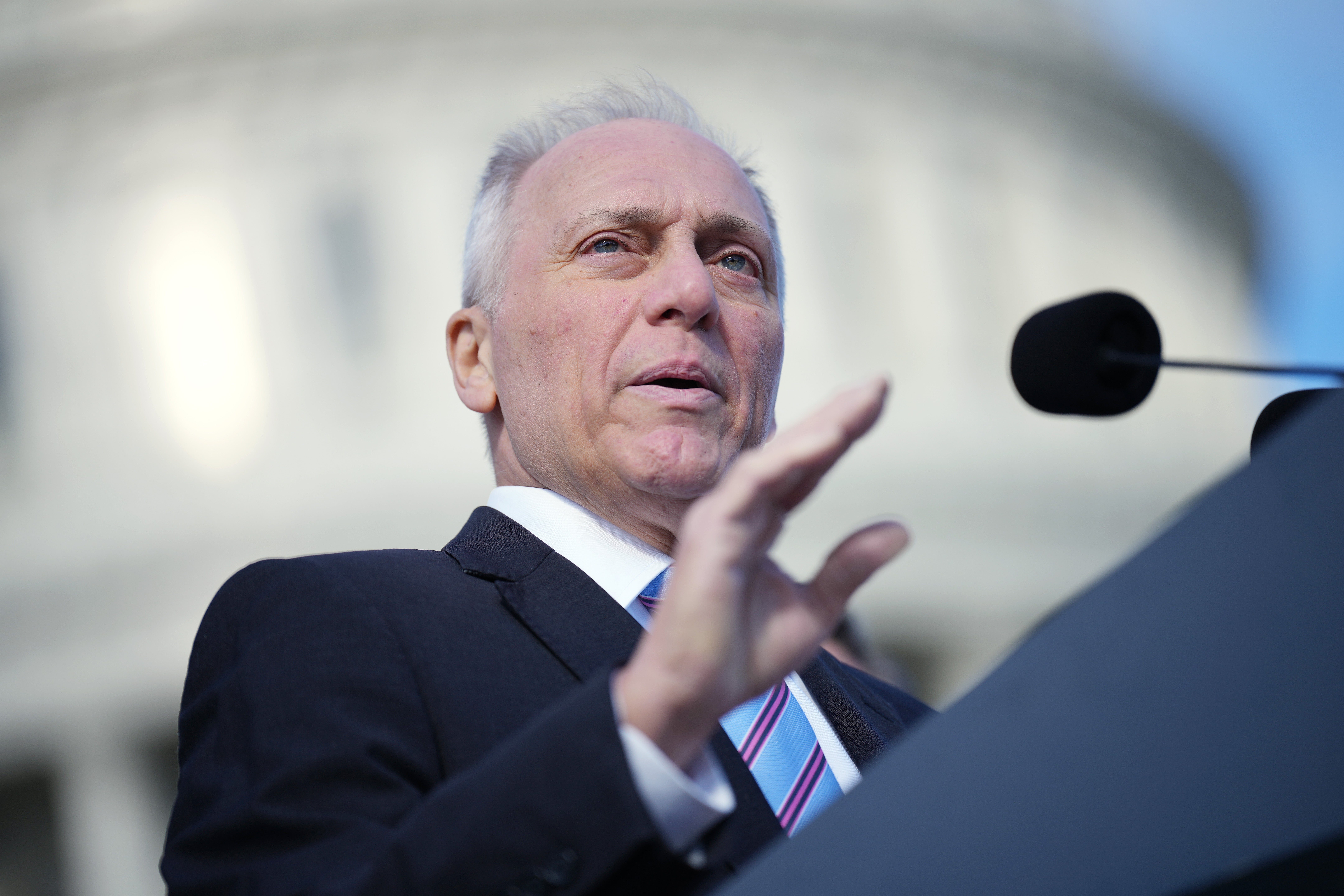Mike Johnson is set to face a vote on Friday that will determine whether he remains Speaker of the House, and although he is running unopposed with Donald Trump’s support, it’s unclear if all his conservative colleagues are willing to back him up.
Johnson, a Republican from Louisiana, has faced pushback from some Republicans after he supported a recent spending bill that the president-elect and Elon Musk opposed.
That could pose a problem for him this week because Johnson can only afford to lose two Republican votes – assuming all Democrats vote against him – if he wants to keep the top Congressional job. At least one Republican has already signaled they are not voting for Johnson.
As of now, Johnson is the only official speaker candidate, in part thanks to Turmp’s endorsement. However, several other names floated around before Johnson’s nomination was made official, providing some potential backups if Republicans have a repeat of last year’s fiasco.

Who are potential other speaker candidates?
Several notable representatives and non-elected officials have been floated as candidates to replace Johnson in December when Republicans split over a crucial spending bill intended to keep the government running over the holidays.
Elon Musk, the billionaire entrepreneur and now advisor to Trump, was one of the suggested names. Musk, who has turned into a staunch Trump ally, is not a member of Congress but nothing in the Constitution indicates the speaker must be a congressional member.
Similarly, Vivek Ramaswamy, the failed presidential candidate who co-chairs the advisory committee with Musk, was another person suggested for the position due to his proximity to Trump.

Representative Steve Scalise of Louisiana, the No. 2 Republican in the House, seems like an obvious backup choice for the party if Johnson’s bid fails. Scalise’s name was thrown around as a potential successful last year when far-right members threatened to oust Johnson.
Representative Jim Jordan of Ohio, is a staunch Trump ally who has often been one of the suggested speakers. He ascended as a potential candidate during the speaker drama last fall.
Representative Tom Emmer of Minnesota, who serves as majority whip, was a named potential candidate. Emmer has been a member of Congress since 2015 and was one of the people who ran for speaker last year – but Trump sank his bid by publicly opposing him.

Who is Mike Johnson?
Johnson, 52, was elected to Speaker of the House somewhat by chance last year when former representative Matt Gaetz suddenly motioned to oust then-speaker Kevin McCarthy. Republicans had a notoriously difficult time agreeing upon a speaker nominee causing multiple rounds of voting that made a mockery of the party.
Ultimately, they landed on Johnson, a more conservative figure who is allied with Trump but is not as far-right as some of his colleagues.
Johnson advocates for traditional social conservatism but has split from other Republicans on his funding stances. He earned the ire of far-right member Marjorie Taylor Greene last year after pushing for Ukraine aid and made enemies with others for supporting the recent spending bill.
Representative Thomas Massie of Kentucky is the Republican leading the charge against Johnson. Representative Chip Roy, of Texas, has yet to confirm if he will vote for Johnson as well.
Despite that, Johnson told FOX & Friends on Thursday morning that he’s confident he will survive the vote.
“I think we’ll get it done,” Johnson said.







